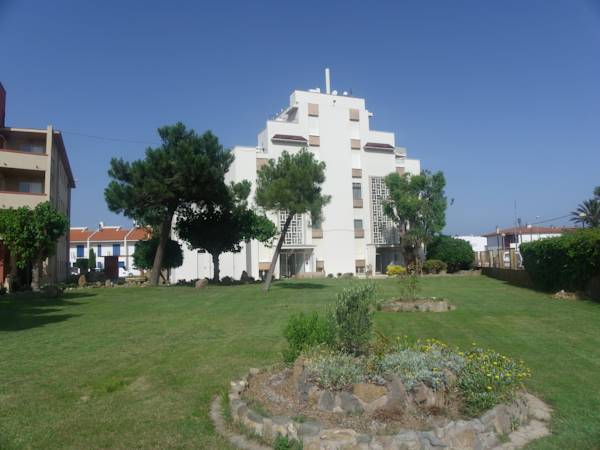
Apartamentos Mas Pinell , 12 rooms
From: To: Availability
Located in El Pinell area in Torroella de Montgrí, Mas Pinell Apartamentos is 110 metres from the beach. It offers a shared outdoor pool, a garden and a terrace.
Each air-conditioned apartment at Mas Pinell comes with a flat-screen TV, a dining area and a terrace. There is also a kitchen with microwave, hob and fridge, and a bathroom with shower. Bed linen and towels can be provided for an extra cost.
The beach near Mas Pinell Apartments is ideal fro surfing and windsurfing. Torroella de Montgrí's town centre is 15 minutes' drive away. The property offers free parking.
Apartamentos Mas Pinell is in Torroella de Montgrí
The historic center of Torroella de Montgrí, formed during the XIIIth and XIVth centuries, is an excellent example of classical Roman camp construction. The village lies at the foot of the imposing Montgrí limestone mountain, full of caves, such as the Cau del Duc, where hominid species found shelter 300,000 years ago.
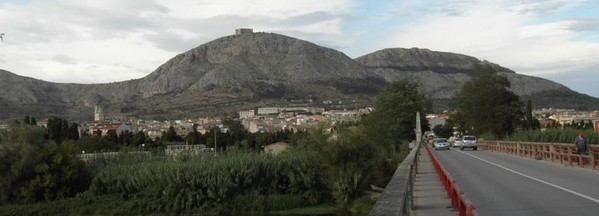
Under the town of Torroella, in the heart of the Costa Brava, we find three distinct nuclei: the center of Torroella, l'Estartit (on the coast) and the famous Medas Islands, visible from almost any point in the center of the Costa Brava.
At the foot of Montgrí, Torroella, where King John I sojourned during the 14th century, features a wealth of monuments:
the Palau Lo Mirador palace, the town walls, the Torre de les Bruixes (Witches’ Tower), the main square, stately homes and the Gothic Church of Sant Genís, setting of the renowned International Music Festival. Also worth seeing is the interesting Mediterranean Museum (Can Quintana) and the Palau Solterra (15th century), which contains a noteworthy collection of contemporary painting.
Torroella became a royal village in 1273, and it's then the octagonal urban plant where streets converge is created. In that confluence cross the four major streets: Carrer Major, Primitiu Artigas, Ullà and l'Església, which cross the Plaça de la Villa, an elegant arcaded square where stands the City Hall, of the XVth and XVIth centuries. It is along the streets of l'Església and Major where lay the most architecturally significant buildings in the village, most of them built between the XVth and XVIIth centuries, such as Casa Hospital, Solterra Palace, the Casa Sagué or Casa Pastors. We also find two colonial-style houses, reminiscence of XIXth century era when many inhabitants of Torroella emigrated to America (mainly Cuba).
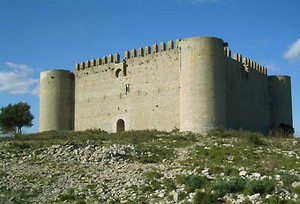
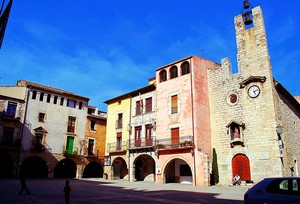
From the center of Torroella we can start different walking routes through the natural park of the Montgrí massif. In fact this group of mountains is the epicenter of both Ampurdán, high and low, something like a "wheel button" as was defined by the writer Josep Pla. The massif extends over 2300 hectares and 8 km in length, and descends abruptly on l'Estartit, where we find the Roca Maura mountain, 200 meters high, towering over the harbor of the village.
The most famous trailing route is the one that leads to Montgrí Castle, located at 303 meters above sea level and visible from almost anywhere in Torroella. Built in 1294 by King James II for strategic reasons in the conflict between the counties of Barcelona and Ampurias, works stopped in 1301 due to the victory of the Barcelona army in this war. Never again construction was resumed. However, it has left us an exterior structure of the walls excellently shaped, very well defined. The panoramic views from the castle (which you can climb and enter for free) are incomparable, probably the best on the Costa Brava, as it offers a view of upper and lower Ampurdán.
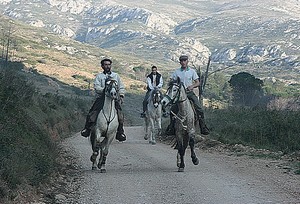
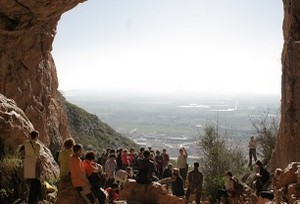
On the way that leads to the summit you'll find three chapels, some in ruins, which served to devotees of the Virgin during the past centuries, the best known of which is the Santa Catalina chapel.
Who makes this journey to the Torroella Castle should not miss the Cau del Duc cave, located on the south side of the mountain (we have to take a detour in full up to the castle to see it), at about 200 meters of altitude. The origin of its name comes from the predatory bird that nested on the Montgrí mountains, an eagle-owl. The cave was water seepage formed, which dissolved the limestone.
Map and how to arrive

- Apartments(3)
-
 Villas(5)
Villas(5)
- Hotels(7)
- Beaches(1)
- Music Festivals(2)
- Feast days(1)
- Museums(1)
- Sea caves(1)
- Megaliths(1)
- Castles(1)
- Buildings(1)












































